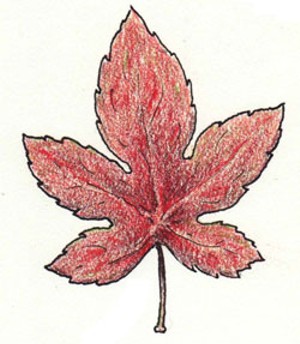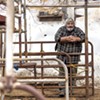Published April 14, 2010 at 9:06 a.m.
If maple syrup is Vermont’s liquid gold, we’re in the midst of a gold rush. In 2009, Vermont sugar makers pumped out 920,000 gallons of syrup — more than any other state and the largest amount produced here since 1944.
Contrary to the economics of most commodities, that increased supply hasn’t reduced prices; in fact, it’s had the opposite effect. For a variety of reasons, not least of which is newfound demand in Europe and Asia, the average price of a gallon of Vermont maple syrup has risen from about $29 in 2007 to nearly $40 today. This translates into $226 million worth of annual economic gain to the state, which is, well, pretty sweet.
The spike in production in 2009 has been attributed to the especially favorable weather — hard frosts at night and warm, sunny days — that graced the state early that winter. But there’s got to be more to the story than that, since syrup production has been steadily rising for a decade or more. In 2001, for example, Vermont produced less than a third of 2009’s yield.
According to industry insiders, at least three other forces have been pushing more maple into market: expansion of existing sugar makers’ operations, entry of new sugar makers into the business, and technological advances that have made it easier and cheaper to produce more syrup than ever before.
Don Bourdon, 62, has observed all those trends in his 15 years of boiling sap in Woodstock. A county director of the Vermont Maple Sugar Makers’ Association, the industry’s nonprofit advocacy group, Bourdon will increase the number of trees he taps from 5000 to upward of 7000 in 2011.
That sounds like a lot of trees, but Bourdon says it’s becoming more common to see full-time sugar makers tapping 30,000 or even 50,000 and making a nice living at it. “Everybody’s responding to the demand out there,” he says. “There’s increased consumer recognition, and maple syrup is gaining popularity as a natural sweetener.” The widespread use of syrup as a sweetener and food additive has not only raised the average price of the product, Bourdon notes; it’s shrunk the gap in value between grade A syrup and grade B.
But Bourdon isn’t just working harder; he’s working smarter. Like many of the larger producers of maple syrup, Bourdon has installed a vacuum-tube system to draw the sap out of the trees, a reverse-osmosis machine to raise the sugar content of the sap before he heats it, and an oil-fired evaporator.
All of that is a far cry from how maple syrup was made just 40 years ago: by collecting it in buckets hung from trees and cooking it in a wood-fired evaporator. “It used to be that a quarter gallon of sap from a tree was good,” Bourdon explains, “but now we’re getting a third to a half gallon.” And, thanks to the reverse-osmosis machine, which presses the sap against a filter and delivers a thicker liquid to the sugarhouse, the time and money spent boiling have decreased dramatically.
Gary Gaudette is proud of that news. He’s the president of Swanton-based Leader Evaporator, the only commercial manufacturer of maple sugaring equipment in the United States. If you need tubing, stubby spouts, drill bits or buckets, Leader is probably where you’ll get them. Gaudette is quick to point out that his company has plenty of competition from firms in Québec, which supplies 70 percent of the world’s maple syrup. Nonetheless, since 2005, Leader has increased the number of employees at its 45,000-square-foot plant by 22. “The industry has expanded in leaps and bounds in the last few years,” Gaudette says.
And it could be poised to expand again, because of an invention of Timothy Perkins, the director of theCheck-Valve spout adapter. Made from food-grade nylon, it’s a sterile tap with a valve that prevents sap from flowing back into the tree. According to Perkins’ research, it works. “We’ve never seen it yield less sap,” he says. In fact, the tap has added from 20 to 100 percent sap volume, depending on its use and the combination of natural variables.
Since Perkins is an employee of UVM, his invention became the school’s intellectual property, and it licenses the valve’s production to Leader Evaporator. Leader, in turn, outsources the molding of the valve to Progressive Plastics in Williamstown, making for a heartwarming local business story. This is the first year the Check-Valve has been used commercially — Gaudette says his company has sold more than 2 million, and he estimates 500,000 are being used in Vermont — so the device’s effects have yet to be quantified. Gaudette thinks the valve may allow sugar makers to tap trees earlier without needing to worry about the holes closing up — a tactic that would have helped during this year’s unexpectedly early sugaring season.
If syrup really is Vermont’s signature cash crop, we all have good reason to ponder how global warming may affect it in the future. Maple trees thrive best in the state’s current moist continental climate; warmer temperatures could make them struggle and die off. Perkins, who has researched the issue, says a massive maple migration, if it ever happens, is a long way off. “It will happen to some extent,” he says, “but a lot of the models that predicted it discounted forest management by people, and if people want maple trees in Vermont, they can keep them here for a long time.”
Perkins notes that increased temperatures have already affected maple sugaring. Over the last 40 years, he says, the sugaring season has shifted 10 days earlier and decreased in length from 33 days to 30. “But that’s largely been offset by increases in technology of sap collection,” he adds.
Assuming an unlimited demand for maple products, any good capitalist may want to do some back-of-the-envelope mathematics and see just how much untapped potential still exists here. It’s not a difficult calculation in the abstract. According to the Vermont Maple Sugar Makers’ Association, about one of every four trees in the state is a sugar maple. The Agency of Natural Resources estimates there are 18 billion trees in Vermont. That translates into 4.5 billion maples. If they were all tapped and yielding a third of a gallon annually — with 40 gallons of sap going into each gallon of syrup — Vermont could produce 37,500,000 gallons of syrup. Figure an average price of $40 per gallon, and the crop is worth $1.5 billion. Sugar high, anyone?
Maple Sugar Rush
Whether they’re selling syrup, eating it or putting it to less orthodox uses, Vermonters go with the flow.
It’s no secret that maple syrup is one of Vermont’s most valuable commodities. As markets get flooded with this year’s crop — said to be a bumper — we decided to tap more deeply into what maple means in the Green Mountains.
For starters, Kirk Kardashian offers an overview of how the global economy, climate change and new technology are affecting the maple industry. (Hint: Syrup isn’t getting any cheaper.) Then Ken Picard learns about the use of sugaring as therapy, Lauren Ober delves into a bit of sweet science, and Alice Levitt proposes that Québecois sugar-shack chefs could teach our homegrown ones a thing or two.
More By This Author
Speaking of Food, business
-

Q&A: Howard Fisher Delivers Meals on Wheels With a Side of Good Cheer
Dec 20, 2023 -

Video: Howard Fisher Delivers Meals on Wheels
Dec 14, 2023 -

Q&A: Alexis Dexter Rescued 57 Shelter Cats During the July Flood
Sep 13, 2023 -

Video: Two Months After the Flood, Alexis Dexter Rebuilds Kitty Korner Café in Barre and Continues to Rescue Cats
Sep 7, 2023 -

Vermont to Open $20 Million Business Flood Relief Fund
Jul 27, 2023 - More »
Comments
Comments are closed.
From 2014-2020, Seven Days allowed readers to comment on all stories posted on our website. While we've appreciated the suggestions and insights, right now Seven Days is prioritizing our core mission — producing high-quality, responsible local journalism — over moderating online debates between readers.
To criticize, correct or praise our reporting, please send us a letter to the editor or send us a tip. We’ll check it out and report the results.
Online comments may return when we have better tech tools for managing them. Thanks for reading.















































